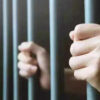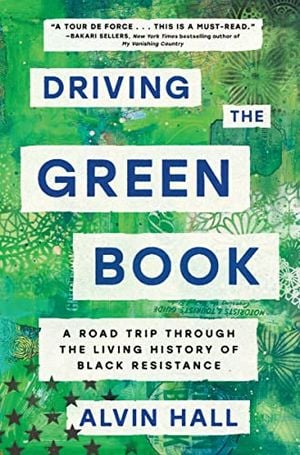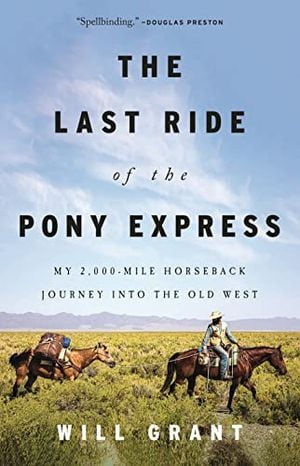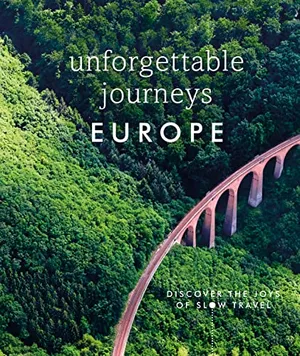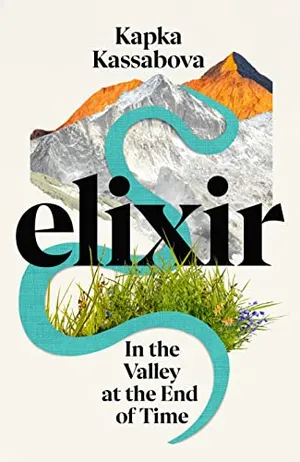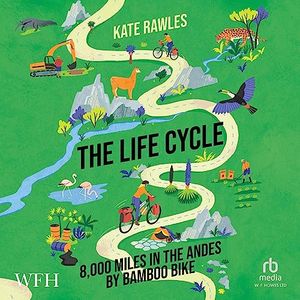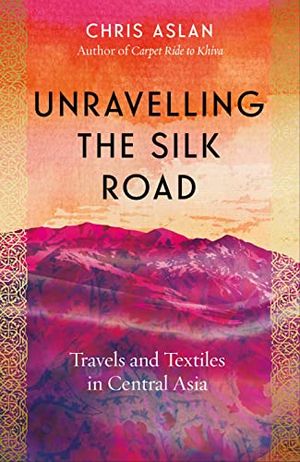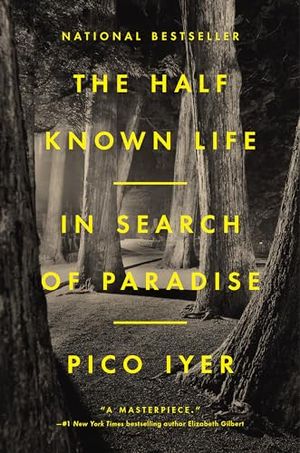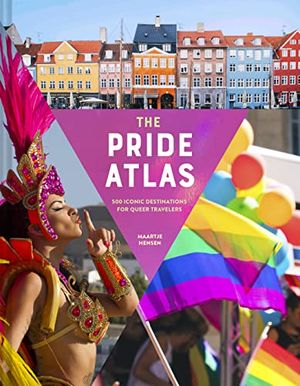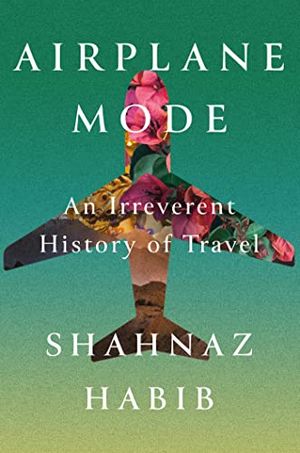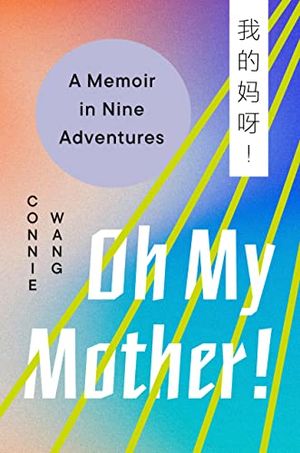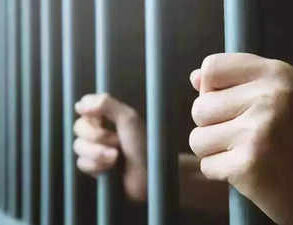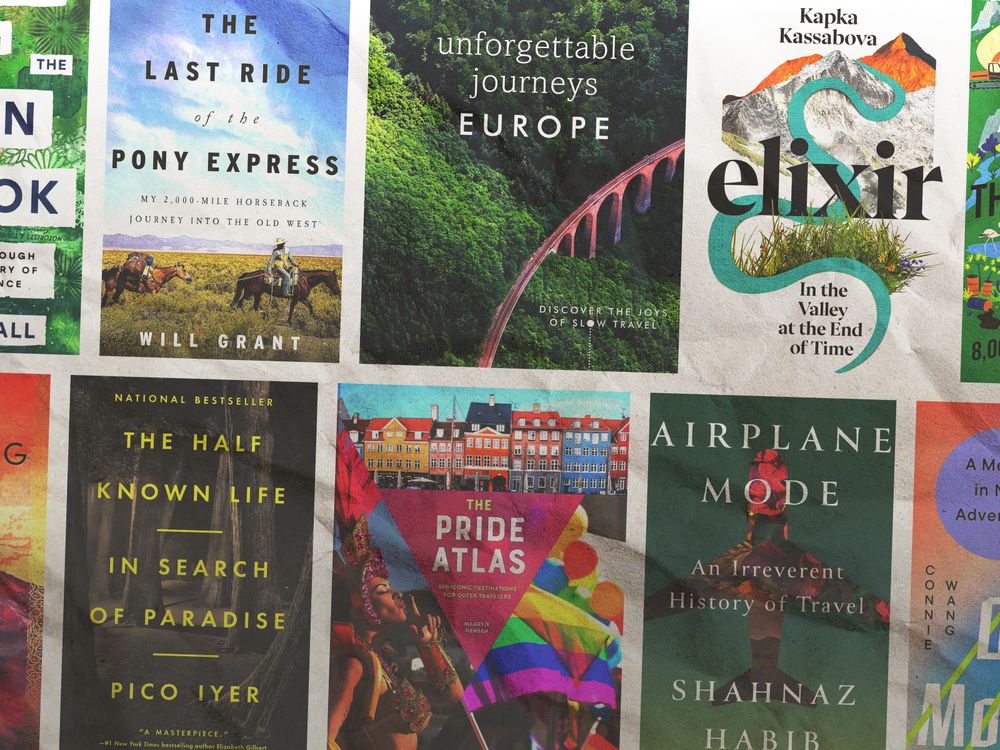
This year’s top titles include The Last Ride of the Pony Express, Elixir, Airplane Mode, and more.
Illustration by Emily Lankiewicz
It’s often said that travel is all about the journey, whether it’s planning a remote island holiday or setting out on the adventure of a lifetime across the Arctic Ocean. But it can be almost as thrilling to roam the world from the comfort of our homes. Just take our pick of 2023 travel books, which include everything from humor-fueled essay collections and thought-provoking narratives to tomes brimming with full-page colorful photographs and tips on finding the most welcoming LGBTQ+ spots around the globe. They all share the uncanny ability to transport readers through time and space without ever having to open the front door.
Whether it’s a deep delve into a Balkan landscape of healing plants and foraging, or a more than 2,000-mile road trip through America’s racial history, here are ten travel books that are more than worthy of this year’s holiday wish lists.
Driving the Green Book: A Road Trip Through the Living History of Black Resistance by Alvin Hall
From 1936 to 1967, the Green Book served as an annual travel guide for African Americans, helping them to identify welcoming hotels, restaurants, gas stations and other businesses across the United States during the Jim Crow era. Compiled by Black New York City postman Victor Hugo Green, this essential reference publication included places like Manhattan’s Hotel Theresa, once considered the “Waldorf of Harlem,” and the Moulin Rouge Hotel in Las Vegas, frequented by celebrities like Harry Belafonte and Ella Fitzgerald during its five-month stint in 1955.
Award-winning broadcaster Alvin Hall first learned about the Green Book in 2015, and he was immediately intrigued. Several years later, he and a friend, activist Janée Woods Weber, set out on a 2,000-plus-mile cross-country road trip from Detroit to New Orleans, visiting many of the establishments once featured in the guide’s pages. (Harlem’s Schomburg Center for Research in Black Culture has a nearly complete collection of the Green Book, which Hall utilized.) Along the way, Hall also gathered memories from some of the guide’s last surviving users.
The result, Driving the Green Book: a Road Trip Through the Living History of Black Resistance, is a poignant 288-page journey along America’s open roads, delving into the country’s racial past, detailing the Green Book’s life-saving history and bringing it all together in one remarkable read.
The Last Ride of the Pony Express: My 2,000-Mile Horseback Journey Into the Old West by Will Grant
In 2019, American journalist Will Grant embarked on a five-month, 2,000 mile journey on horseback from Missouri to California. His goal: to follow the historic route of the Pony Express, a legendary frontier mail system operating between April 1860 and October 1861, which used a series of horse-mounted riders and relay stations to deliver mail from one end to the other in just ten days. Although the express service went bankrupt after only 18 months, it remains an iconic symbol of America’s Old West.
Grant chronicles his 142-day adventure in The Last Ride of the Pony Express, a first-person narrative describing his trip across the Great Plains of Nebraska and the sagebrush steppe of Wyoming in the company of his two horses, Badger and Chicken Fry. While Grant reflects on the West’s modernization over time, it’s his vivid descriptions of the communities and local residents—including ranchers, farmers and migrant sheep herders—along the way that make the book a real page-turner.
Unforgettable Journeys Europe: Discover the Joys of Slow Travel
The latest in the Unforgettable Journeys series by DK Eyewitness, a publisher of nonfiction books known for its visual travel guides, Unforgettable Journeys Europe highlights the notion that travel really is all about the “getting there.” This inspirational tome details 150 of Europe’s best slow adventures, such as kayaking through Lithuania and crossing the Arctic Circle by train.
The bucket list is organized by modes of transportation, with sections titled “By Bike” and “By Rail,” for example. Illustrations, photos, maps and plenty of practical information (including start and end points for trails, difficulty ratings and website links) are then spread throughout the text, making the book as much colorful reference as it is inspiring read. In the “On Foot” chapter, there’s a description of Scotland’s Fife Pilgrim Way, a 56-mile trek along an ancient pilgrim route with cathedral and countryside views. Along with details on what to see during the multiday hike, the book features a selection of highlighted tips, like what to do (pick wild berries while passing through Clatto Reservoir) and how to splurge (dinner and an overnight stay at the cozy, Michelin-starred Peat Inn) en route.
Elixir: In the Valley at the End of Time by Kapka Kassabova
After a decade of living in the Scottish Highlands, native Bulgarian Kapka Kassabova returned to her roots in southwestern Bulgaria’s remote Mesta Valley, a rural region known for its array of wild crops and their vast medicinal properties. Over several seasons (Kassabova’s move occurred at the beginning of the Covid-19 pandemic), the poet and writer set out to study the deep relationship between the area’s people and plants, as well as with the land itself. Her resulting text—with chapters like “Pine Syrup,” “Honey Sellers” and “Shepherd’s Superfood”—is an autobiographical exploration of one of the globe’s lesser-known corners, one brimming with forages, healers and a wealth of folk traditions.
“Elixir is the vibrant, beautiful story of a singular, remarkable place,” writes Foreword book reviewer Catherine Thureson. “It issues a call to reclaim the physical, emotional and spiritual connection between humanity and the natural world.”
Elixir
In Elixir, in a wild river valley and amid the three mountains that define it, Kapka Kassabova seeks out the deep connection between people, plants, and place.
The Life Cycle by Kate Rawles
British writer and cyclist Kate Rawles has a penchant for raising awareness about environmental challenges through her own adventures—and inspiring action in the process. In 2006, Rawles cycled 4,553 miles from Texas to Alaska, interviewing Americans about climate change along the way. Her latest endeavor—an 8,288-mile, 13-month journey across the length of the Andes Mountains on a self-built bamboo bicycle she nicknamed “Woody”—is the basis for her new book, The Life Cycle.
During this largely solo endeavor in 2017 and 2018, the author crossed some of the planet’s most diverse ecosystems, including South America’s Atacama Desert and the Bolivian salt flats. Simultaneously, she found herself witnessing the devastating effects of extreme biodiversity loss caused by industries such as logging and gold mining, and met with activists and communities working to regenerate these habitats—sharing their concerns and insight throughout the narrative.
The Life Cycle: 8,000 Miles in the Andes by Bamboo Bike
Pedalling hard for thirteen months, eco adventurer Kate Rawles cycled the length of the Andes on an eccentric bicycle she built herself. The Life Cycle charts her mission to find out why biodiversity is so important, what’s happening to it, and what can be done to protect it.
Unravelling the Silk Road by Chris Aslan
An extremely well-researched story of three ancient trade routes that helped define a continent, Chris Aslan’s Unravelling the Silk Road “merges trauma with textiles to track the past and present experiences of the people of Central Asia,” writes author Clare Hunter. He explores the roles played by wool, a textile used by the region’s nomads for both yurts and clothing; silk, a commodity that was once more valuable than gold; and cotton, the cause of Russian and then Soviet colonization, since it provided cheap material for the global superpower.
Turkish-born Aslan interweaves his own personal experiences (the author once picked cotton with locals and worked with nomadic yak herders in Central Asia’s Pamir Mountains) with the history of each route and its impact on the lives of local residents—as well as the region itself. Aslan also examines how political and cultural changes are affecting new trade routes and the people who depend on them.
The Half Known Life: In Search of Paradise by Pico Iyer
British-born essayist and acclaimed writer Pico Iyer is no stranger to travel journalism. The author—whose childhood was divided among English, Indian and U.S. cultures—is known for works like 1989’s Video Night in Kathmandu, a stark look at modern Asia, and The Global Soul, a 2001 collection of essays on finding home in a world of international airports and shopping malls. For more than 40 years, Iyer has traveled the globe, reflecting on the planet and our role within it.
“After years of travel, I’d begun to wonder what kind of paradise can ever be found in a world of unceasing conflict,” writes Iyer in his latest book, The Half Known Life: In Search of Paradise, “and whether the very search for it might not simply aggravate our differences.” The result is a retrospective look at his own travels and encounters—from North Korea’s capital city of Pyongyang to Jerusalem’s Ethiopian chapels—through the idea of “paradise,” what it means and whether it exists.
The Half Known Life: In Search of Paradise
Traveling from Iran to North Korea, from the Dalai Lama’s Himalayas to the ghostly temples of Japan, Pico Iyer brings together a lifetime of explorations to upend our ideas of utopia and ask how we might find peace in the midst of difficulty and suffering.
The Pride Atlas: 500 Iconic Destinations for Queer Travelers by Maartje Hensen
Big, bold and colorful, The Pride Atlas is a valuable resource for LGBTQ+ folks and their allies, as well as a perfect coffee table topper. Compiled by queer author and photographer Maartje Hensen, its 400 pages are brimming with eye-catching photos and practical information, such as websites like Meetup and Couchsurfing that are useful for connecting with similarly minded locals and travelers, and resources regarding laws and cultural attitudes worldwide.
At the heart of the book are 500 destinations from around the globe, each one of them highlighting a way of engaging with LGBTQ+ culture. You’ll find drag shows, Pride parades, campsites, microbrew pubs and other places, from San Francisco’s Transgender District to Haircuts for Anyone, an inclusive and affirmative hair salon in Montreal that charges by sliding scale.
“Hopefully,” writes Hensen, “The Pride Atlas expands your horizons and inspires you to go out into the world, to (un)learn from others … because, like gender, the world doesn’t fit into binary.” Indeed.
The Pride Atlas: 500 Iconic Destinations for Queer Travelers
Combining immersive photography with expertly researched travel writing, this is the ultimate guidebook for LGBTQ+ travelers—whether you’re planning your next getaway, daydreaming from the comfort of your armchair, or seeking to learn about queer culture in other parts of the world.
Airplane Mode: An Irreverent History of Travel by Shahnaz Habib
An enlightening and entertaining debut essay collection by a U.S.-based Indian Muslim author, Airplane Mode brings a unique and under-represented perspective to the world of travel. Shahnaz Habib approaches such topics as the origins of passports, colonial modes of thinking about travel—like safaris and pilgrimages—and terms like “pseudiscovery,” which she uses to describe an explorer’s claim of discovering something that’s existed for thousands of years, with both wit and curiosity, incorporating her own personal narratives to boot.
Perhaps Annabel Abbs, author of Windswept: Walking the Paths of Trailblazing Women, says it best in her praise for Airplane Mode, which has been long-listed for the Andrew Carnegie Medals for Excellence. She calls it “a fascinating, wide-ranging and insightful travelogue that poses some of the biggest questions of all: Who gets to travel, and what is it that makes us so keen to travel in the first place?”
Airplane Mode: An Irreverent History of Travel
This witty personal and cultural history of travel from the perspective of a Third World-raised woman of color, Airplane Mode, asks: what does it mean to be a joyous traveler when we live in the ruins of colonialism, capitalism and climate change?
Oh My Mother!: A Memoir in Nine Adventures by Connie Wang
The closest Chinese expression to “Oh, my god” is wode ma ya, which literally translates to “Oh, my mother.” It’s a declaration of astonishment, as well as the title for journalist Connie Wang’s humorous and heartfelt book, Oh My Mother!: A Memoir in Nine Adventures. Wang details the complicated relationship between herself and her stubborn and “wildly opinionated” mother, Qing Li, across nine essays, taking readers from time-share properties in Cancun and Aruba to a Magic Mike strip show in Las Vegas. “This is our memoir—a long personal essay, if you will—and it was forged through shared fact-checking,” Wang writes in the book. “Qing was the first person to read each chapter as it was written, and she is this book’s first editor.” According to Kirkus Reviews, the author “drives to the heart of how a daughter comes to know her mother as someone with a life beyond motherhood.”
A Note to our Readers
Smithsonian magazine participates in affiliate link advertising programs. If you purchase an item through these links, we receive a commission.
This post was originally published on this site be sure to check out more of their content.

